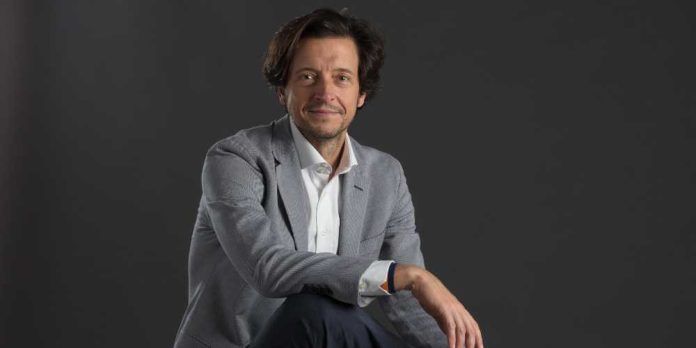The sports betting market in Brazil is about to reach a regulatory framework. Economy Minister Fernando Haddad recently reported that the Provisional Measure (MP) to tax the sector will be sent for analysis and approval at the end of the month.
Although the tax percentages that will be set have yet to be defined, the debate currently revolves around responsible gaming: how can Brazil protect players and companies from betting fraud, problem gambling, and money laundering?
While Brazil awaits its sports betting regulation, the most relevant operators in the country created the Brazilian Institute for Responsible Gaming (IBJR).
Speaking with SBC, Andre Gelfi, President of the IBJR and Managing Partner of Betsson in Brazil, explained the institute’s goals and how the operators will collaborate with the industry once the regulation is in force, both to avoid and solve issues.
SBC: What will be the institute’s pillars to contribute to the regulation?
Gelfi: As I’m involved [in the betting market], I feel very responsible at a personal level to do everything I can [to contribute], especially as I’m in a leadership role in a leading company in the industry. This is high on my agenda not just as President of the Institute, but also as Andre.
The IBJR was born as an alternative to promote the discussion of these regulatory issues in the country. Until then, members of the Betting and Gaming Council (BGC) in England helped remotely. Interacting is more difficult due to the distance and language difficulties.
The IBJR is being developed in Brazil, and all the basic knowledge, at least for now, comes from the BGC. It’s an entity that has experience and brings the most important players in the industry together, and they have very interesting insights for us.
Our idea is not exclusively to replicate what the BGC does since we are in Brazil and the circumstances and jurisdictions are different. However, taking into account their knowledge, the BGS is a great source of information for IBJR’s beginnings. We have a very fluid and harmonious relationship with the members, who are also founding members of the institute, and I believe that, eventually, we’ll be mature enough to use our own experience.
We currently don’t have a regulated sports betting market in Brazil, and it’s a natural move to look for this knowledge outside the country. From the moment the market is localized, the knowledge will increase thanks to the acquired experience.
The companies that are part of the IBJR have licenses in Canada, Italy, Latin America, Malta, Sweden, the Netherlands, the UK, and the US. These are companies that have experience and different perspectives, so it’s easier to compile the best practices to build a dialogue with the Brazilian authorities that are carrying out the framework for the first time in the country.
We aim to be a reference in the RG discussion in Brazil by promoting events and discussions and exchanging perspectives, for example, with doctors, psychologists, operators, and the media. Giving visibility to the discussion is helpful. We have the role of facilitating this exchange, identifying problems, and searching solutions. This is a fundamental role of the IBJR.
We’re currently discussing the upcoming regulation with the Government, but this is just the beginning. Once we have a regulated market in Brazil, that’s when the IBJR’s role will start. The Institute anticipates the opening of the market since adjusting is always more difficult than building correctly.
SBC: What kind of guarantees around responsible gaming do you think should be included in the initial provisions of the regulation?
A.G.: I imagine that this issue is addressed in the regulation, which will probably be shared in the short term. I think this issue is one of the most relevant in the segment, and I hope that the Brazilian regulators, who have been looking at this for a long time, have looked at it carefully and that it is part of regulation. [That includes] measures, good practices, and guidance on responsible gaming.
The members of the institute already adopt all the necessary practices, since they are regulated in several countries, and I understand that they are pioneering companies in this matter. In a way, the Scandinavian countries, having more mature markets and being references, even within Europe, lead the discussions on responsible gaming which still take place in Northern Europe.
When I review my role of being a leader of a company that is recognized as a reference and a market that is about to be regulated, where the [debate] about regulation and rules and the way in which it will be formalized is being developed, the opportunity and the need for this institute becomes clear. Currently, we have everything we need to carry out this conversation in the best possible way, adjusting to Brazil’s situation.
So yes, I imagine this issue will be addressed. Our intention is to guide not only Brazilian operators and providers but also society in order to cover the entire system. [Like] practices to mitigate problems, so we analyze problem gambling with the attention it deserves.
SBC: What kind of solutions can you propose in order to set a favorable environment for betting in Brazil?
A.G.: Our vision is to facilitate what we consider ideal within the existing market. We are in no way seeking to impose something on the government. The government is the one that makes the decisions in Brazil. [We] provide information and showcase the regulated markets, the practices that have been adopted, if we agree with the measures that other countries implemented and we report how we would do it in Brazil.
We advise, offer support, answer questions, but the final decision rests with the government. We are here to assist because we understand what is relevant and can bring good results. We believe that we have a fundamental role in helping the Ministry of Economy specifically to work on this issue directly from Brazil. We are working in a coordinated manner. Until [recently], each one of us worked for ourselves, and now we do it from the Institute.
SBC: When announcing the launch of IBJR, you mentioned money laundering as a sensitive topic. What steps can Brazil take to avoid falling into bad practices?
A.G.: Brazil, in terms of its financial system, is a fairly developed country, which has tools and technology that provide us with the necessary controls to avoid suspicious practices that may result from money laundering.
Pix allows us to know where the money is coming from and where it will go, and it makes it possible to set the necessary restrictions to only accept deposits from [real people or entities], set KYC procedures, and only allow the user account to receive funds from a bank account with the same CPF, and this also applies for withdrawals. This measure is essential.
Depending on how much players deposit and withdraw, the controls become more rigorous to identify if there’s something that could be related to money laundering.
SBC: Once the regulations get finally approved, will you be working with the different states to guarantee a safe environment with tailored advice? Or is the IBJR’s perspective more federal?
A.G.: If the regulations change from state to state, it’s natural to have a different approach depending on the state. I don’t know if there’s a preference for doing it one way or another. I think it will happen according to the need and evolution of the market. It’s hard to imagine [that] today, as there are different discussions taking place at the state and national level.
The federal issue is receiving a lot of attention since the Economy Minister said that the regulation could happen in the upcoming weeks. The discussion needs to progress at a state level, and the responsible gaming chapter is inherent to this. We have to analyze this as the market evolves.














